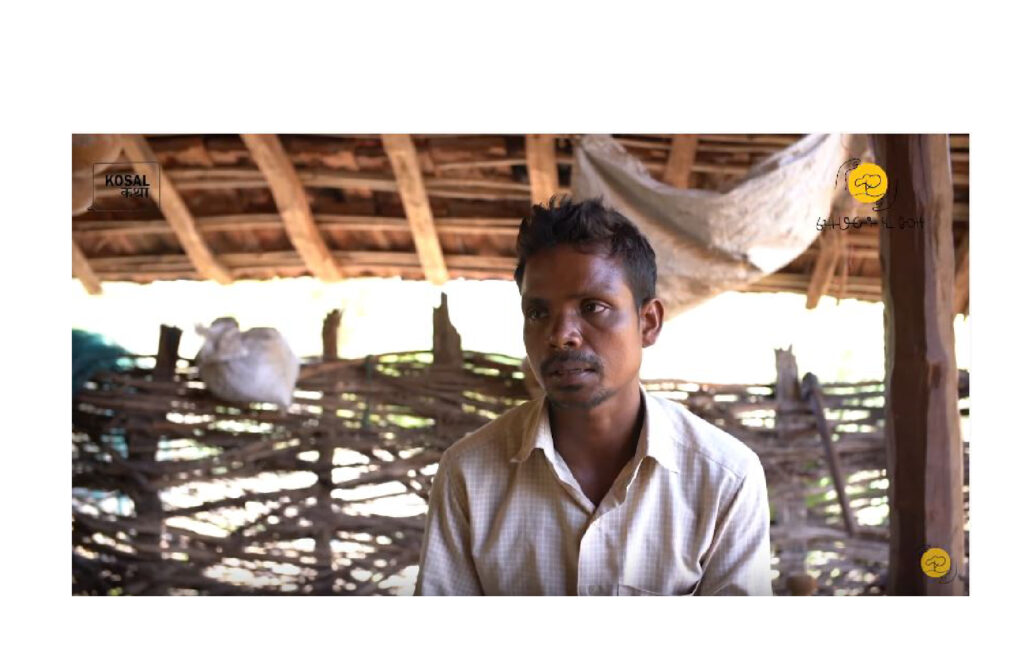कॉस्ट ऑफ वॉर या युद्ध की कीमत एक कहानी श्रृंखला है।
यह कहानियाँ बस्तर की कई परतों को उधेड़ती हैं। यह सलवाजुड़ुम की ज़मीन और 55 हज़ार से ज़्यादा विस्थापित लोगों की आपबीती है। 40 साल से हिंसा झेल रहे जंगल और सरकारी आंकड़ों में 20 साल में हुई 12 हज़ार मौतों का हिसाब है। यह अपने संविधान में लिखे अपनी ज़मीन, अपने हक़ के लिए भटकता अबूझमाड़ है। यह कहानियाँ सड़क किनारे के शहरी और जंगल के आदिवासी समाज की दूरी है। सरकार के सौतेले पन, पुलिस की बर्बरता, पूंजीपतियों के कब्जे और नक्सली आतंक का कच्चा चिट्ठा है।
साल 2005 में छत्तीसगढ़ सरकार ने नक्सलियों के खिलाफ एक मूवमेंट चलाया सलवा जुडूम। सलवा जुडूम का हिंदी अर्थ है “शांति का कारवां”। हालांकि महेंद्र कर्मा (कांग्रेस नेता) को इसका जनक कहा जाता है। साल 2013 में नक्सलियों ने कांग्रेस नेताओं के काफिले पर हमला किया जिसमें कर्मा, नंद कुमार पटेल, विद्याचरण शुक्ल सहित कई कांग्रेसी नेता मारे गए। सलवा जुडूम अभियान में पुलिस ने ग्रामीण आदिवासियों को नक्सलियों के खिलाफ लड़ने के लिए तैयार किया। वे इन्हें SPO या स्पेशल पुलिस ऑफिसर कहते थे। इस पूरे मूवमेंट ने आदिवासियों को नक्सलियों और पुलिस के बीच फंसा दिया था। साल 2011 में सुप्रीम कोर्ट ऑफ इंडिया ने इस मूवमेंट को बंद करने का फैसला लिया।
लवाजुड़ुम के कारण भय का माहौल बना। क्षेत्र के आदिवासी घर छोड़ने को मजबूर हो गुए। कुछ सामाज सेवी संस्थाओं की रिपोर्ट के अनुसार लगभग 55 हज़ार आदिवासी अपने घरों से दूर आंध्रप्रदेश और तेलंगाना में विस्थापित हुए। इन्हें IDP यानी इंटर्नलि डिस्प्लेसड पीपल या आंतरिक, विस्थापित लोग कहा जाता है।
अपने घर और जंगलों से दूर आदिवासी दूसरे राज्य में केवल जीवन यापन भर कर पा रहे हैं। विस्थापन के 15 वर्षों बाद भी इन्हें मूलभूत सुविधाएं नहीं मिल पाई हैं। स्थानीय लोगों ने अब तक इन्हें स्वीकारा नही है। हाल ही में तेलंगाना विधानसभा में विस्थापित लोगों को राज्य से निकाले जाने की बात की गई है।
मरकाम रमेश बताते हैं कि 2005 या 06 की एक सुबह 4 बजे उनके गांव में पुलिस वाले आए। मन में पुलिस को लेकर भय पहले ही था, पुलिसके आने की ख़बर से गांव के सारे पुरुष भाग कर जंगल एयर पहाड़ों में जाकर छुपे। कुछ लोग दूर से गांव को देख पा रहे थे। पुलिस ने गांव को घेर लिया था। 10 बजे सारे पुरुष वापस आए, तब तक पुलिस जा चुकी थी। लौटने के बाद उन्होंने महिलाओं से पूरे मामले की जानकारी ली। महिलाओं ने बताया: पुलिस ने सभी को सलवाजुड़ुम में शामिल होने कहा है। शामिल न होने की शर्त में जहाँ दिखे वहीं मार देने की धमकी भी दी है। पुलिस वालों ने 6 घरों को आग भी लगा दिया था। यह गांव वालों के लिए भयावह स्थिति थी।धीरे-धीरे गांव के लोग गांव छोड़कर पहाड़ों और जंगलों में झोपड़ी बना कर रहने लगे, वहीं थोड़ी ज़मीन देख खेती भी करने लगे।
कुछ दिन ऐसा ही चलता रहा, पुलिस की दखल भी अब बढ़ने लगी। पुलिस ग्रामीणों को वर्दी पहना कर मर दिया करती थी। मारने के बाद हाथ में हथियार थमा दिया जाता था। पुलिस के बयानों में वह मुठभेड़ में मारा गया नक्सली होता था। पुलिस की फाइलें तैयात हो जाती थी।
कुछ दिन बाद पुलिस गांव में दोबारा आई, इस बात भी वे काफी संख्या में थे। पिछले बार की तरह इस बार थोड़े आक्रामक तरीके से सलवाजुडूम में शामिल होने कहा गया। इस बार पुलिस ने पूरा गांव आग के हवाले कर दिया, एक ग्रामीण की गोली मार कर हत्या भी की।
इस दौर में पुलिस अगर किसी ग्रामीण पर केस फ़ाइल जरती थी तो वह अपने को सुरक्षित महसूस करता था। पुलिस द्वारा मारे गए ज्यादातर लोगों पर कोई केस नहीं होता था। जबकि केस वाले लोगों से सिर्फ पूछताछ की जाती थी। शायद पुलिस या सरकार की फ़ाइल में न होने वालों की मौत को छुपाना आसान रहा होगा।
रमेश ने इंजराम और दोरनापाल के आस पास लोगों को नदी में फेंकने कि घटना का भी दावा किया। वे बताते हैं कि पुलिस ग्रामीणों को नदी के पास ले जाया करती थी। बलपूर्वक उन्हें बोरे में ठूंस दिया जाता था, बोरे की सिलाई कर उन्हें नदी में फेंक दिया जाता था।
रमेश ने भी इस बर्बरता को करीब से देखा है। उनके परिवार के 2 सदस्यों को भी पुलिस ने उठाया था। वे दोनों रमेश के मामा थे। उन्हें गांव से दूर ले जाकर उनके ऊपर पैरा (धान की मिंजाई के बाद बची घास) डालकर उन्हें जलता छोड़ दिया। जब तक कोई पहुंचता तब तक वे पूरी तरह झुलस चुके थे।
जोगा मंडावी जो अब कन्नापुरम तेलंगाना में रहते हैं। वह भी 2006 से गांव छोड़कर यहां रह रहे हैं। उनके के दो बड़े भाई आज भी छत्तीसगढ़ के अपने गांव में रहते हैं। जोगा बताते हैं जब सलवा जुडूम अपने चरम पर था, उनके भाई और जीजा जी को पुलिस ने नक्सली बताकर मार दिया। इस घटना में पुलिस ने कुल 6 लोगों को मारा था। जिसमें तीन उनके गांव के थे बाकी तीन दूसरे गांव के। यह सभी गांव में रहकर खेती करते थे। उन्हें पुलिस ने गांव से उठाया, एक दिन थाने में रखकर उन्हें थाने से दूर ले जाया गया। दूर जंगल में पुलिस ने सभी 6 लोगों को मार दिया। इस घटना ने जोगा को पूरी तरह से तोड़ दिया था। वे आए दिन नक्सली और पुलिस की लड़ाई में पीसते लोगों को देख रहे थे। ऐसे में घर से दूर रोज़ी-रोटी का इंतजाम ही जोग के लिए बड़ी उपलब्धि थी।
ऐसे कितने मरकाम रमेश और जोगा मंडावी इस हिंसा की कीमत चुका रहे होंगे। रेटिना और फ्रिगरप्रिन्ट तक का हिसाब रखने वाली डिजिटल सरकार के पास इन विस्थापितों की सूची भी नहीं है। इनके पुनर्वास के लिए कोई चर्चा ही नहीं है








